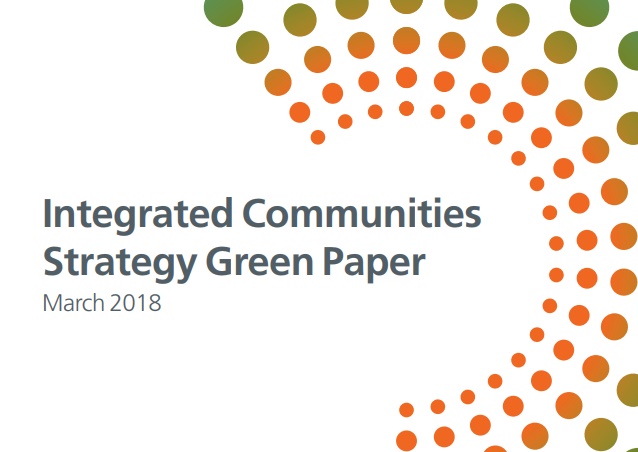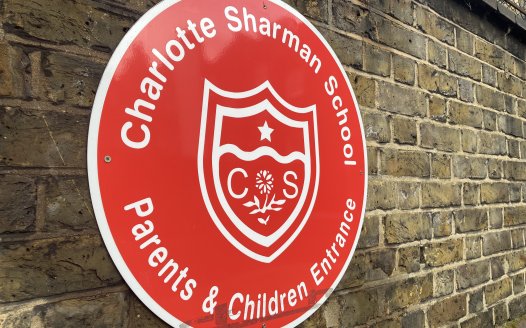NSS says integration efforts should focus on common citizenship
Posted: Tue, 5th Jun 2018
The National Secular Society has called on the government to treat citizens as individuals and to clamp down on the segregation caused by faith schools to boost social integration.
We made the calls in response to a government consultation on its Integrated Communities Strategy green paper, which outlined proposals to tackle the issue, particularly in England.
The paper made clear that "the freedom to practise religion needs to be balanced against the rights and freedoms of others" – a statement we strongly welcomed in our response.
We said integration and social cohesion would be "best served by the state defending the absolute freedom of religious and other belief, whilst at the same time being clear that the right to manifest religious belief is only assured insofar as it does not impinge on the rights and freedoms of others".
But the paper also included a proposal to expand a scheme supporting faith institutions and expressly backed faith schools, despite saying new schools "should be inclusive and promote community cohesion".
Our response said the state should "treat all citizens equally as individuals rather than as members of communities" and increase opportunities for "ordinary people in particular groups to express their own views, rather than being spoken for".
We advised that providing support to faith communities needed be done with "great caution" to avoid inadvertently strengthening intolerant groups antagonistic to integration.
We criticised recent multicultural and multifaith approaches to dealing with changing social demographics, arguing that they give "unjustified power to group leaders, sometimes at the expense of individual human rights".
Our response said a focus on 'communal rights' under the multicultural framework has led to horrendous abuses, such female genital mutilation (FGM) or forced marriage. We said people (particularly women) have been left isolated from mainstream society and trapped in cultural and religious blocs, within which group pressure and 'shame' culture has denied them their legal rights.
We expressed disappointment at the paper's failure to challenge faith schools. We said non-faith schools were "achieving far more in promoting integration" than their faith-based counterparts, particularly because they do not promote specific religious or non-religious worldviews, are welcoming environments for pupils from all backgrounds and do not engage in faith-based discrimination against pupils or teachers.
We expressed support for efforts to: promote fundamental British values in schools; protect children's rights in home education, unregistered schools and independent schools; and ensure lawful free speech can thrive at universities.
We also voiced support for efforts to bring people from different communities together to play a part in civic life, emphasising that those "where people come together over shared interests and local issues" are preferable to those based around religious identities.
We warned that the entrenchment of sharia councils and parallel legal systems within minority communities creates a space for the perpetuation of patriarchal control and harm to women. We also criticised a proposal to require civil marriages to be conducted before or at the same time as religious ceremonies, arguing this would represent unreasonable state encroachment on religious practice.
Instead we recommended a complete separation of religion and state in the institution of marriage, with marriage reformed as a civil institution and no religious 'marriage' having any legal bearing without a separate civil marriage also taking place.
We added that the government should challenge 'modesty culture', particularly in schools, to empower girls and women. Last year our research found that girls in dozens of schools in England were being forced to wear hijabs.
Stephen Evans, the NSS's chief executive, said the government had "identified a worthwhile set of problems to tackle" but "remains too reluctant to tackle several of their most significant causes".
"The government must recognise that empowering faith groups will not help to integrate people of all faiths and none into a tolerant and harmonious society. If it is serious about achieving its stated aims it must stand for the principle that everyone should enjoy the same rights and be subject to the same duties.
"It must also confront religious leaders who stand in the way of that. In particular it must prioritise tackling faith-based segregation in education and rolling back religious groups' influence in schooling more widely."
Many of the proposals the strategy makes cover policy areas which are devolved in Scotland, Wales and Northern Ireland. The paper said the UK government would "work closely with the devolved administrations to share learning about the integration challenges and our learning of what works in tackling them".
Last month the government dropped plans to lift the 50% faith-based admissions cap on new faith schools in England, recognising that such a policy would be inconsistent with the policies outlined in the integration green paper.
When the paper was published in March we expressed concern over the government's proposed reliance on faith groups and failure to tackle religious segregation in schools.
No more faith schools
We need inclusive schools free from religious discrimination, privilege or control. Join our campaign.








